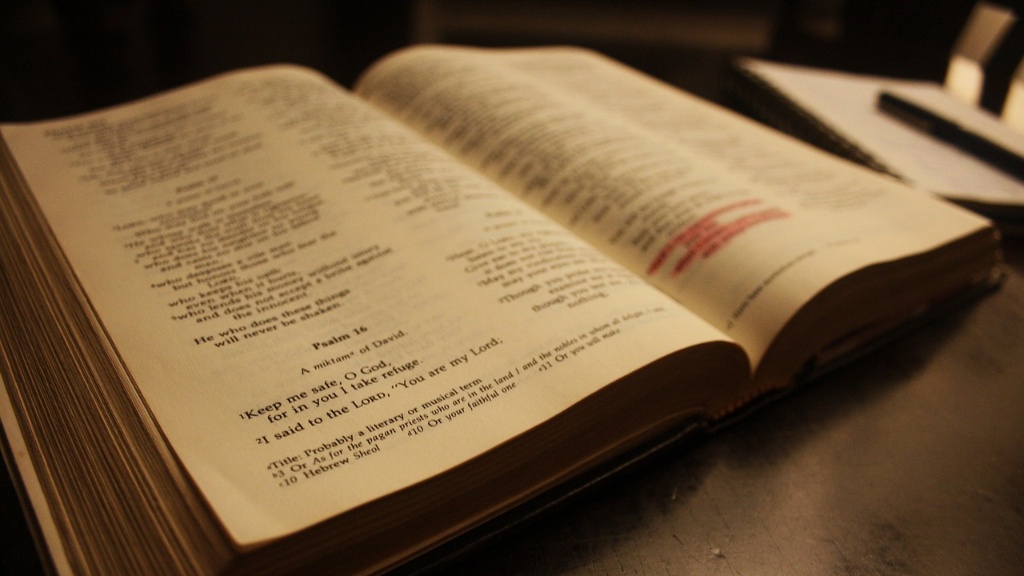Zedekiah In The Bible
Zedekiah is an important figure in the Bible, known as the last king of Judah before the Babylonian Exile. Zedekiah was a vassal of the Babylonian king, Nebuchadnezzar, and is best remembered for his role in the fall of Jerusalem. He is mentioned in several books of the Old Testament, including Jeremiah, Ezekiel, and the book of Kings.
According to biblical records, Zedekiah was the son of King Josiah of Judah. He reigned for eleven years beginning in 597 BCE, after Nebuchadnezzar’s short reign. As mentioned, Zedekiah was a vassal of the Babylonian king. He was also closely connected to the prophet Jeremiah, who attempted to advise the king and steered him away from bad decisions. However, Zedekiah was strongly influenced by false prophets and ultimately chose to rebel against Babylon, leading to the invasion of Judah and the eventual fall of Jerusalem.
Zedekiah was an important figure for different religious and historical practices. He was the last king of Judah before the exile and symbolizes the end of the Judean monarchy. Zedekiah is recalled in the prophecies of Ezekiel, which talk of the nearness of the Day of Judgement. His reign is also mentioned in the book of Nahemiah, as part of the Jews’ return from exile.
From an historical perspective, scholars have argued that Zedekiah’s reign was a turning point in Israelite history. His reign marked the beginning of Judah’s decline after the death of Josiah and its subjugation to the Babylonian Empire. Historians have also noted the close spiritual relationship between Zedekiah and Jeremiah, which speaks to the spiritual guidance provided to the king. This relationship was important in pushing Zedekiah to repent and attempt to restore his faith.
From an archaeological perspective, Zedekiah’s reign is marked by several significant monuments. The most famous of these is the Zedekiah’s Cave, an ancient fortification near Jerusalem in which numerous artifacts, including ritual vessels and weapons, were found. This site has been used to study the late Iron Age period in Jerusalem and its relationship to other parts of the Babylonian Empire.
As mentioned, Zedekiah is a key figure in the Bible and Jewish history. His name appears multiple times in the Old Testament and is often remembered for his role in the fall of Jerusalem. Zedekiah is also important for his relationship with the prophet Jeremiah and the spiritual lessons to be drawn from it, as well as for his archaeological monuments. He remains an important figure in religious and historical circles, even though it is unclear whether he was an ideal or a villain.
Political Consequences of Zedekiah’s Reign
Perhaps the most significant consequence of Zedekiah’s reign was the fall of Jerusalem. Through his covenant with Babylon, Zedekiah was able to bring some stability to Judah. Thus, his decision to rebel was seen as a grave mistake and led to the Babylonian Invasion. This is seen as a significant point in Jewish history as it marked the beginning of the Babylonian Exile, a period of hardship and displacement for the Jews.
Aside from the fall of Jerusalem, Zedekiah’s reign also had political consequences for the surrounding nations. This period marked the rise of the Babylonian Empire and its political dominance in the region. It also solidified Babylon’s control over lands in Mesopotamia, the Mediterranean and Anatolia. Zedekiah’s decision to rebel and his subsequent captivity also increased Babylon’s power and authority in the region, making it an even greater force in the coming centuries.
It is also important to consider the consequences of Zedekiah’s reign for other nations in the region. After the fall of Jerusalem, Nebuchadnezzar continued to expand Babylon’s empire, conquering many cities and nations in the region. This led to increased displacement and hardship for those who were subjugated, particularly the Jews. In the centuries following Zedekiah’s reign, the region would struggle to recover from the consequences of Babylonian dominance.
Zedekiah and the Prophets
During Zedekiah’s reign, he was closely associated with the prophets, particularly Jeremiah. It is believed that Zedekiah received advice from the prophet, who attempted to steer the king away from bad decisions. But, Zedekiah was often swayed by the false prophets, who argued against Jeremiah’s prophecies. Ultimately, Zedekiah’s decision to rebel against Babylon was seen as a grave mistake and led to the fall of Jerusalem.
Moreover, Jeremiah’s prophecies were also seen as a warning against false beliefs. According to Jeremiah, if Zedekiah would have followed the teaching of the prophets, he would have been spared and his kingdom would have been saved. Thus, Zedekiah is seen as an example of the price of rejecting the words of the prophets.
Finally, Jeremiah’s prophecies were a reminder of the consequences of sin and disobedience. Zedekiah’s decision to rebel ultimately led to the downfall of Judah and Jerusalem, representing the price of forsaking God’s commandments. This is seen as a spiritual lesson for those who aspire to serve God faithfully.
Religious Relevance of Zedekiah
Zedekiah is an important figure in the religious world, specifically in Judaism and Christianity. In Judaism, Zedekiah is mostly remembered as the last king of Judah before the Babylonian Exile. This makes him an important symbol of the end of the kingdom of Judah, as well as the beginning of the Babylonian Exile. He is also mentioned in several books of the Old Testament, providing further insights into his character.
In Christianity, Zedekiah is remembered as a warning against the consequences of sin and disobedience. As mentioned, Zedekiah’s decision to rebel against Babylon led to the fall of Jerusalem. This is seen as a spiritual lesson for those who aspire to serve God faithfully and as a reminder of the price of forsaking God’s commandments.
For both religions, Zedekiah is a symbol of tragedy and suffering, but also of perseverance and salvation. He is a reminder of the power and glory of God, and of the need for faith and obedience. He is also an example of the consequences of sin and disobedience, providing an important spiritual lesson for generations to come.
Religious Legacy of Zedekiah
The religious legacy of Zedekiah is extensive. As previously mentioned, he is an important figure in both Judaism and Christianity and is often remembered as a warning against sin and disobedience. His reign is also mentioned in numerous books of the Old Testament, providing spiritual and moral lessons for believers. His archaeological monuments also provide important insight into life in the late Iron Age period in Jerusalem.
But, Zedekiah’s legacy is far-reaching. He is seen as a historical figure of courage and resilience, as he was able to maintain some independence over Judah despite Babylon’s growing power. Moreover, his relationship with Jeremiah is seen as a demonstration of spiritual guidance, as well as an example of the power of prophecy. Finally, Zedekiah’s reign is also seen as an example of the power of faith, and of the importance of embracing a spiritual path in difficult times.
Today, Zedekiah remains an important figure in religious and historical circles. His reign marked a crucial turning point in Israelite history, and his relationship with Jeremiah is seen as a spiritual lesson for those seeking to serve God faithfully. He is a symbol of the power and glory of God, as well as of the consequences of sin and disobedience. As such, Zedekiah’s legacy is an important reminder for both Jews and Christians.
Symbolic Significance of Zedekiah
Finally, Zedekiah is also an important symbol, particularly in Judaism. As mentioned, he is seen as the last king of Judah before the Babylonian Exile and serves as an important symbol of the decline of the kingdom. Additionally, his decision to rebel against Babylon is seen as an important warning against false prophets, and a reminder of the spiritual guidance provided by the prophets.
Furthermore, Zedekiah is seen as a symbol of resilience and perseverance. Despite facing difficult odds, he was able to maintain some independence over Judah and is remembered for his courage in the face of adversity. Furthermore, his relationship with Jeremiah also serves as a reminder of the strength of faith, and of the importance of choosing the right spiritual path.
Finally, Zedekiah is an important symbol of redemption and forgiveness. Although his decision to rebel against Babylon led to the fall of Jerusalem, he is still remembered for his ability to repent and restore his faith. Thus, Zedekiah remains an important symbol for Jews, Christians, and all believers striving for spiritual growth and redemption.





